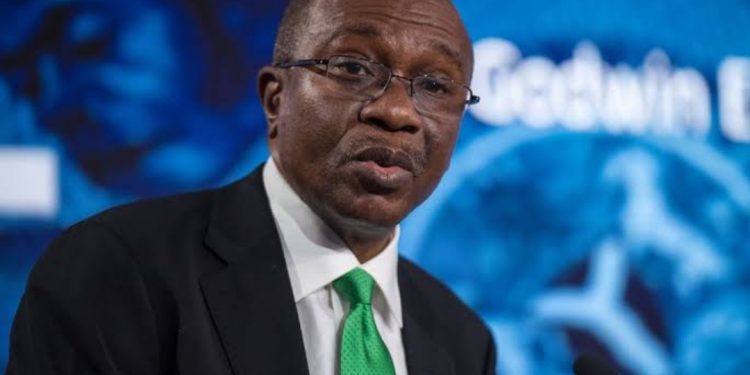By Chioma Iruke
Nigeria’s Apex bank, Central Bank of Nigeria (CBN) has ordered commercial banks to create mobile applications and alert systems to update customers of their foreign exchange movement.
This follows the CBN’s ban on sales of forex to Bureau de Change operators and directive to deposit money banks to establish teller points to fulfil legitimate forex requests from customers.
Recall, the CBN had on Tuesday announced that it would no longer sell forex to bureau de change operators due to price manipulation and corruption. It asked Nigerians who want to buy forex to go to banks.
The naira has continued to fall due to this new policy, exchanging for N525/$1 on Wednesday.
The new directive is contained in a circular signed by the Director, Banking Supervision Department, Haruna Mustafa, and issued on Wednesday with the reference number: BSD/DIR/PUB/LAB/14/082.
The circular read, “Further to the Monetary Policy Committees (MPC briefing of July 27 2021 of Deposit Money Banks (DMBs are hereby reminded to set up teller points at designated branches across the country to fulfil legitimate FX requests for Personal Travel Allowance (PTA Business Travel Allowance (BTA), tuition fees, Medical payments, SMEs transactions, amongst others.
“In this regard DMBs are also required to adequately publicise the locations of the designated branches and make necessary arrangements to sell FX to customers in cash and or electronically in compliance with extant regulations.”
Banks were also advised to ensure that no customer is turned back or refused forex provided that documentation and all other requirements are satisfied equally.
“Undue delays rationing and/or diversion of FX is strongly discouraged whilst DMBS are required to establish electronic applications and alert systems to update customers on status of their FX requests
“As communicated during the briefing, toll-free lines have been set up at the CBN for bank customers to escalate unresolved complaints related to their FX requests,” the statement addedd.
The apex bank however restated that it would continue to closely monitor banks conduct and compliance with the directive, adding that any breach of the directive would be severely sanctioned




































